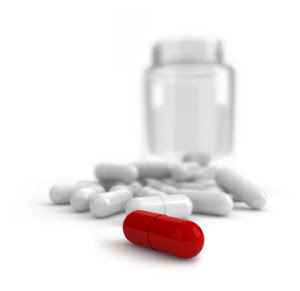STORY HIGHLIGHTS
- Safety, effectiveness of vaccine is not at issue, manufacturer and CDC emphasize
- Sanofi Pasteur is voluntarily recalling about 800,000 doses
- CDC: The four batches were shipped in November, distributed throughout U.S.
- Spokesman: Recalled vaccine was 12 percent below the point where it should have been
U.S. version is made in Pennsylvania
The French manufacturer Sanofi Pasteur is voluntarily recalling about 800,000 doses of vaccine meant for children between the ages of 6 months and 35 months.
The company and the Centers for Disease Control and Prevention emphasized that the recall was not prompted by safety concerns, and that even though the vaccine isn't quite as potent as it's supposed to be, children who received it don't have to be immunized again against H1N1.
The CDC emphasized that there is no danger for any child who received this type of vaccine.
When asked what parents should do, CDC spokesman Tom Skinner said, "absolutely nothing." He said if children receive this vaccine, they will be fine.
Sanofi Pasteur spokesman Len Lavenda said that the company's test results found the recalled vaccine's potency was 12 percent below the point where it should have been. He added that the company has done studies in the past that showed "vaccine containing as little as half of the recommended dosage" still created the necessary immune response in children.
Lavenda told CNN that it takes about three to four months to produce flu vaccine. He said 85 percent of that time is spent on testing.
"In order for vaccine to move to next phase of production it [the vaccine] has to pass all tests and at the end, it has to pass another battery of tests before it can be shipped out," Lavenda said. The company also keeps samples of each batch of vaccine, "to periodically test them to see if they stay within specification until expiration date."
Four batches -- or lots -- of H1N1 vaccine in question were shipped in early November. Lavenda said all four lots passed every test before they left the factory. However, on December 7, the company learned that all "four lots we tested failed," according to the spokesman.
That's when the company notified the CDC and the Food and Drug Administration, which asked them to retest the samples. Results from the subsequent sample came in on Monday, according to Lavenda, who said it takes about a week to complete these tests.
According to Sanofi Pasteur, it is unclear how many doses of this particular vaccine are still in circulation. This particular vaccine was targeted for infants and toddlers between the ages of 6 months and 35 months -- children who need to get two shots several weeks apart, but only get half of a regular dose each time.
The vaccine was shipped in 0.25-milliliter pre-filled syringes, which contain half a dose of vaccine in each shot. Children 3 years old and older would have been given a shot with a full dose.
According to the CDC's vaccine recommendations, children younger than 9 years need to have two flu shots to be fully protected against the H1N1 virus.
The CDC's Skinner said there is scientific evidence that when there's a slight drop in vaccine potency, the immune response is still sufficient.
"We're very confident that children who received this vaccine are properly protected, provided that they get the second dose that is recommended," Skinner said.
According to the CDC, this vaccine was distributed throughout the United States. Doctors and providers are urged to check their vaccines and return any to Sanofi Pasteur if they come from the following lots:
The vaccine was manufactured in Sanofi Pasteur's Swiftwater, Pennsylvania, factory.
...reblog from www.cnn.com





